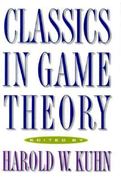Question
(c) Two profit-maximising firms, A and B, producing differentiated goods are competing in the same market, simultaneously selecting prices pA and pB (Bertrand competition). Profits
(c) Two profit-maximising firms, A and B, producing differentiated goods are competing in
the same market, simultaneously selecting prices pA and pB (Bertrand competition).
Profits for each firm equal the quantity it sells times the difference between the price it
charges and marginal cost. The demand schedule faced by A is qA = 1pA +pB/2 and
the demand schedule faced by B is qB = 1 pB + pA/2. Firm A produces the good at
a marginal cost of 1/2. Firm A's costs are known to both competitors.
(i) Suppose that firm B's marginal cost is 1/2, and that this is also known to both
competitors. Derive equilibrium prices. (3 marks)
(ii) Next suppose that firm B's marginal cost can be either 0 or 1, with equal
probabilities, and that B observes its cost before A and B select their prices, while
A does not observe firm B's marginal cost but knows that it is either zero or 1 with
equal probabilities. Derive equilibrium prices. (5 marks)
(iii) Now suppose that, as in (ii), B's marginal cost can be either 0 or 1 with equal
probabilities, but A can fully observe B's costs. Derive equilibrium prices and
expected equilibrium profits for this scenario and compare them with those obtained
under (ii). (4 marks)
Step by Step Solution
There are 3 Steps involved in it
Step: 1

Get Instant Access to Expert-Tailored Solutions
See step-by-step solutions with expert insights and AI powered tools for academic success
Step: 2

Step: 3

Ace Your Homework with AI
Get the answers you need in no time with our AI-driven, step-by-step assistance
Get Started


